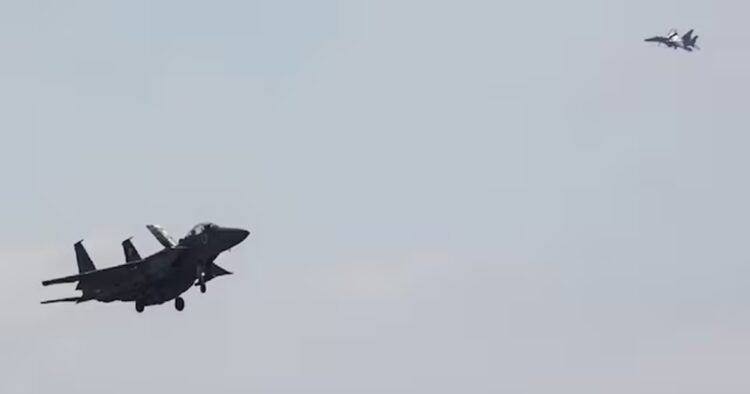Israeli Air Force jets flew over Beirut on Sunday during the funeral of terrorist group Hezbollah’s leader Hassan Nasrallah, delivering what Israel’s Defence Minister Israel Katz described as a “clear message” to Israel’s enemies.
“Israeli Air Force planes currently flying over Beirut during the funeral of Hassan Nasrallah are sending a clear message: Anyone who threatens to destroy Israel and attacks Israel –- this will be their end,” Katz said in a statement.
Nasrallah, who led Hezbollah for over three decades, was killed in an Israeli airstrike in Beirut’s southern suburbs in September.
Massive Turnout at Nasrallah’s Funeral
Tens of thousands of black-clad mourners gathered in Beirut to pay their respects to Nasrallah, showing unwavering support for Hezbollah despite its recent setbacks. Women wailed as a truck carrying the coffins of Nasrallah and Hashem Safieddine, his chosen successor who was also killed in an Israeli strike, moved slowly through the crowd.
The coffins were draped in Hezbollah’s yellow flag and topped with two black turbans, symbolizing their leadership.
Nasrallah’s assassination marked a significant blow to Hezbollah, which has long played a dominant role in Lebanon’s political landscape. However, the group still commands a strong support base within the country’s Shiite Muslim community.
Hezbollah Vows to Continue Resistance
In a televised address at the funeral, Nasrallah’s successor, Naim Qassem, reaffirmed Hezbollah’s commitment to its long-standing fight against Israel and rejected external influence over Lebanon. “The resistance is not over, the resistance is still present and ready to face Israel,” he declared.
As Nasrallah’s past speeches played over loudspeakers, mourners raised their fists and chanted, “We are at your service, Nasrallah” and “We are loyal to the promise, Nasrallah.” Despite freezing temperatures, men, women, and children braved the cold to attend the funeral, which had been delayed for months due to security concerns.
The event underscored the deep divisions in the region and the ongoing tensions between Israel and Hezbollah.

















Comments